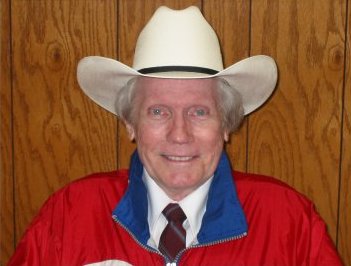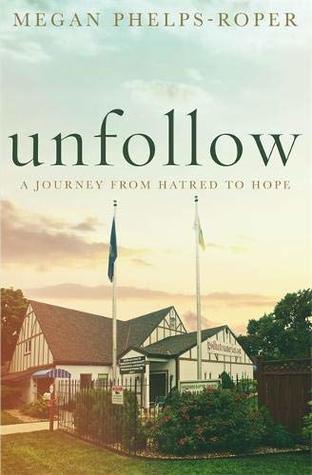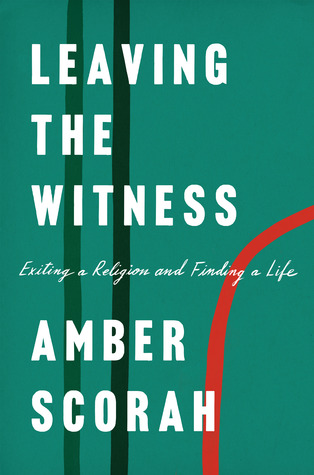 I’ve fallen behind on the weekly prompts for Nonfiction November, but wanted to post a follow-up to my 2018 list of a baker’s dozen of memoirs I’ve read that explore women’s religious experiences. I’ve read a couple more this year that are worth adding to the list; in addition to their themes of doubt and making a new life outside the church, they also share an interesting detail: it’s an online friend that goads each author into questioning her beliefs. Even if you aren’t typically interested in this subgenre, you’ve likely heard of Unfollow because of the high-profile story behind it. (This week is hosted by Katie of Doing Dewey.)
I’ve fallen behind on the weekly prompts for Nonfiction November, but wanted to post a follow-up to my 2018 list of a baker’s dozen of memoirs I’ve read that explore women’s religious experiences. I’ve read a couple more this year that are worth adding to the list; in addition to their themes of doubt and making a new life outside the church, they also share an interesting detail: it’s an online friend that goads each author into questioning her beliefs. Even if you aren’t typically interested in this subgenre, you’ve likely heard of Unfollow because of the high-profile story behind it. (This week is hosted by Katie of Doing Dewey.)
Unfollow: A Journey from Hatred to Hope, Leaving the Westboro Baptist Church by Megan Phelps-Roper
“God hates f*gs.” If you know one thing about Westboro Baptist Church of Topeka, Kansas, it’s that this slogan plastered their signs and was part of their armory of in-your-face chants at nationwide protests.

Fred Phelps in 2002. (User Rudolf 1922 on sv.wikipedia.)
Megan Phelps-Roper grew up in the Church, which was founded by her grandfather, Fred Phelps, and made up mostly of her extended family: Phelps had 13 children, and Phelps-Roper is one of 11. In 1989 Phelps learned that nearby Gage Park was a gay cruising spot and wrote in disgust to the mayor and other city officials. In a sense, he never got over it. The anti-homosexuality message would become Westboro’s trademark, at least until the church started its picketing of military funerals after the Iraq War – which, like 9/11, was interpreted as being God’s just punishment of American immorality.
By portraying it from the inside and recreating her shifting perspective from early childhood onwards, Phelps-Roper initially makes her extreme upbringing seem normal. After all, it’s the only thing she knew, and it never would have occurred to her that her family could be wrong. The Phelpses were fiercely intelligent and also ran a law firm, so it’s impossible to just dismiss them as redneck idiots. Frequent passages from the King James Bible appear in italics to echo the justifications the Church cited for its beliefs and actions.
 Only gradually did doubts start to creep in for the author as various uncles and brothers left the church. Phelps-Roper was even the voice of Westboro on Twitter, but defending funeral protests became increasingly difficult for her. Two things brought her to a breaking point. First, in something of a coup, the Church appointed a new body of elders – all male, of course – who instituted ever more draconian rules, such as a dress code for women, and effectively removed her mother from leadership. (Ultimately, they would kick the dying Fred Phelps himself out of the church.) Secondly, the Church started to spread fake news via doctored photos. For example, they claimed to be protesting a royal wedding in London, when in fact Westboro members never go anywhere the First Amendment can’t protect them.
Only gradually did doubts start to creep in for the author as various uncles and brothers left the church. Phelps-Roper was even the voice of Westboro on Twitter, but defending funeral protests became increasingly difficult for her. Two things brought her to a breaking point. First, in something of a coup, the Church appointed a new body of elders – all male, of course – who instituted ever more draconian rules, such as a dress code for women, and effectively removed her mother from leadership. (Ultimately, they would kick the dying Fred Phelps himself out of the church.) Secondly, the Church started to spread fake news via doctored photos. For example, they claimed to be protesting a royal wedding in London, when in fact Westboro members never go anywhere the First Amendment can’t protect them.
All along, Phelps-Roper had been corresponding with “C.G.,” an online acquaintance with whom she played Words with Friends. Chad gently encouraged her to ask why Westboro believed as it did, and to unpick rather than ignore any doctrines that didn’t make sense. “What if we’re wrong? What if this isn’t The Place led by God Himself? What if we’re just people?” she wondered. In November 2012, she and her sister Grace left the Church and the family home, where she’d lived until age 26, and retreated to a Deadwood, South Dakota Airbnb to hike, read and think about what they’d left behind and what came next. I’d had just about enough of Westboro and its infighting by that point in the book – the chapter about her leaving gets a little melodramatic – so, like the author, I was glad to move on to another setting, and this interlude ended up being my favorite section.

Westboro Baptist Church demonstration outside the Virginia Holocaust Museum, March 2010. (JCWilmore [CC BY 3.0 (https://creativecommons.org/licenses/by/3.0)%5D.)
Note: Westboro was the subject of a Louis Theroux documentary in 2006, and in a nice full-circle moment, he’s now interviewing Phelps-Roper on some of her UK book tour spots. And, in another lovely aside, she married C.G.
My rating: 
With thanks to riverrun for the free copy for review.
Leaving the Witness: Exiting a Religion and Finding a Life by Amber Scorah
Like In the Days of Rain by Rebecca Stott, this is the story of growing up in a cult and what happens when, as an adult, a woman has to build a new life free from the constraints – but also unmoored from the comforting framework – of a previously unquestioned belief system. Scorah grew up in Vancouver’s community of Jehovah’s Witnesses and, although she was temporarily disfellowshipped as a teenager for having premarital sex, the faith was her home and gave her a sense of purpose. Witnesses are discouraged from attending university or pursuing careers; without exception, they’re expected to preach and win converts – the only task worth engaging in given that the world is headed towards Armageddon.
 Scorah and her husband went to China as clandestine JW missionaries. Her Mandarin skills were good enough that she could become friends with her English-language pupils and then start to talk to them about religion. In the meantime, she became an early podcast host with the program “Dear Amber,” which offered advice on the Chinese language and culture. She embarked on a flirtatious correspondence with one of her regular listeners, Jonathan from Los Angeles, who goaded her into rethinking everything she’d been taught to believe. “I was questioning with a mind that had been trained not to. It was highly uncomfortable.”
Scorah and her husband went to China as clandestine JW missionaries. Her Mandarin skills were good enough that she could become friends with her English-language pupils and then start to talk to them about religion. In the meantime, she became an early podcast host with the program “Dear Amber,” which offered advice on the Chinese language and culture. She embarked on a flirtatious correspondence with one of her regular listeners, Jonathan from Los Angeles, who goaded her into rethinking everything she’d been taught to believe. “I was questioning with a mind that had been trained not to. It was highly uncomfortable.”
As her marriage and faith simultaneously crumbled, Scorah had to decide what was left to form the foundation of a new life on her own in New York City. “My eye-glazing peace, unquestioning contentment, and eternal life were gone, and the time ahead of me was filled with people I didn’t yet know, uncertainty about the future, and, one day, death.” I was absorbed in the bittersweet outworkings of this before and after: a process of losing faith and deciding what’s next.
The final chapter is a whirlwind tour through her first years in NYC, including the tragic death of her infant son, Karl. This makes for something of an abrupt end to the book; I might have liked to get as much detail on all this as we got about the time in China. But it was clearly a deliberate decision to present such life and death matters from a hard-won secular perspective, without the false balm of a religion that promises she’ll see her son again. There’s a lot of secrecy about the Jehovah’s Witnesses, so this is a rare insider’s view as well as a wrenching account of loss and starting over.
My rating: 
Full disclosure: Amber Scorah offered me a copy through a Facebook group we are both a part of.
Thanks to her and Viking for sending a free copy for review.
Great post! (And I’m waiting for your own memoir–would you ever write one?) Along the lines of these memoirs, I really enjoyed Hanna Pylvainen’s WE SINNERS, years back, which explored a cultish religious upbringing, each chapter in the POV of a different child in a large family. A cool structure.
LikeLiked by 1 person
I remember enjoying that novel very much. If I ever wrote a book, it would probably be a family memoir with religious themes.
LikeLike
I enjoyed reading your thoughts on the memoirs you read because I don’t read very many of them myself.
I wonder, though, why you would choose to lead your review with the Westboro Baptist Church’s hateful statement? Repeating their rhetoric is extending their platform to your own site. Surely there’s a way to draw attention to their behaviour without adding fuel to the fire they’re seeking to ignite?
LikeLike
I’m a memoir addict! They make up a high proportion of my nonfiction reading.
It’s their most famous tagline and sets out what she/the reader is up against with this theology. I figured someone who didn’t remember the name of the church would see that slogan and think, “oh yeah, those people.” Interestingly, Phelps-Roper hints that the church has been softening in recent years and so some of their most inflammatory messages may have been retired. (Did you mean that someone searching for the phrase might find my blog? I don’t tend to think about SEO and stuff like that, nor do I kid myself that I have a wide readership.)
LikeLike
This definitely isn’t a phrase that’s limited to that church though. Unfortunately. I’ve lost count of the number of times I’ve seen this on a sign. A long way from that specific congregation.
If I were to stumble on your ‘blog and read this post, my opinion of what i might find here would definitely be influenced by seeing such a hateful statement, straight off.
(And I don’t think one has to have a wide readership to consider the mechanics that SEO rely on. These are automated processes, so your site can be indexed in a myriad of ways. Some desirable, perhaps others less so.)
LikeLike
I take your point. I will substitute in a well-placed asterisk or two.
LikeLike
I’m not certain why you say that there is “a lot of secrecy about the Jehovah’s Witnesses”. Their meetings are all open to the public. One only has to attend a Kingdom Hall to find out ‘what’s going on’.
LikeLike
This was the impression I got from the author: that because JWs stay out of the limelight and are encouraged to be separate from the culture by not voting, going to college, etc., their practices appear esoteric and are not widely understood. In addition, those who have left the faith feel bound to silence. Another interesting connection with Unfollow: the Airbnb hosts Phelps-Roper lives with are JWs and invite her to their Kingdom Hall. (Are you a Jehovah’s Witness?)
LikeLike
I am a Witness, Rebecca, but did not grow up as one. In fact, I had no contact until my mid-thirties. It’s true we do not vote, but there is no prohibition on going to college. It’s also true that we are not widely understood and yet no religious group in the world makes it easier to find out about them: surely Witnesses have called at your door? And, as I said, all of our meetings are open to the public. Meetings times are posted on the outside of the Kingdom Hall. There is never any collection taken.
I’m happy to answer any questions you may have, either in this forum or by personal correspondence. There is nothing hidden about our beliefs, our practices, or our organization. 🙂
LikeLiked by 1 person
You can also visit the official website jw.org for more information.
LikeLiked by 1 person
It would never be my intent to offend, Debbie; I hope you did not feel ‘got at’ with this post. I think I’ve been true here to the author’s experience, and beyond that I know little about the JWs — though as you say, it would be easy to educate myself. It does concern me that the religion teaches followers to not be engaged citizens and to refuse blood transfusions that could save lives.
LikeLike
You did not offend me at all, Rebecca – and I hope you weren’t offended by my comments. I welcome reasoned discussions about religion, ane mine in particular.
I understand your arguments – thirty years ago I could have been you – and no one was more pro-voting than I was! But I do feel that we engage in a very real way with our communities.
The blood issue is a whole ‘nother discussion. 🙂 I think you might find some of our videos on bloodless surgery and other medical issues interesting. They’re available at jw.org
Thanks for the opportunity for me to present my view of the issues at hand.
LikeLiked by 1 person
I’m curious about both of these, as a life long agnostic I’ve never understood the draw of organised religion, Little lone the appeal of fringe cults.
Thanks for sharing your recommendations
Please stop by to see my NonFicNov: Become The Expert
LikeLiked by 1 person
Thanks for stopping by!
LikeLike
I hadn’t actually heard of Unfollow but it’s one I’d be interested to read. And we all like a memoir, right? Well, lots of us.
LikeLiked by 1 person
I like memoirs that are either fairly close to my experience in some way, or completely different (polar exploration or whatever!). I imagine Unfollow would be a good audio read, and the film is sure to be interesting.
LikeLiked by 1 person
These sound like very interesting reads. I’m fascinated with spirituality and religion and how people exist within a religious group.
LikeLiked by 1 person
Thanks for stopping by and commenting.
LikeLike
You also might like The Sound of Gravel: A Memoir.
LikeLike
I’ve heard of that one and would definitely like to read it.
LikeLike
Both of these books sound fascinating! Unfollow was already on my list so I’m adding Leaving the Witness too.
LikeLiked by 1 person
Thanks, Hayley. I’m pleased that you’re interested.
LikeLike
[…] Bookish Beck’s blog I read a great review of Unfollow by Megan Phelps-Roper, a book that was already on my radar and […]
LikeLike
[…] Unfollow by Megan Phelps-Roper from Bookish Beck […]
LikeLike
[…] Unfollow: A Journey from Hatred to Hope, Leaving the Westboro Baptist Church by Megan Phelps-Roper: Phelps-Roper grew up in a church founded by her grandfather and made up mostly of her extended family. Its anti-homosexuality message and picketing of military funerals became trademarks. This is an absorbing account of doubt and making a new life outside the only framework you’ve ever known. […]
LikeLike
[…] Thousand Book Project. (In previous years I’ve contributed lists of women’s religious memoirs (twice), accounts of postpartum depression, and books on […]
LikeLike